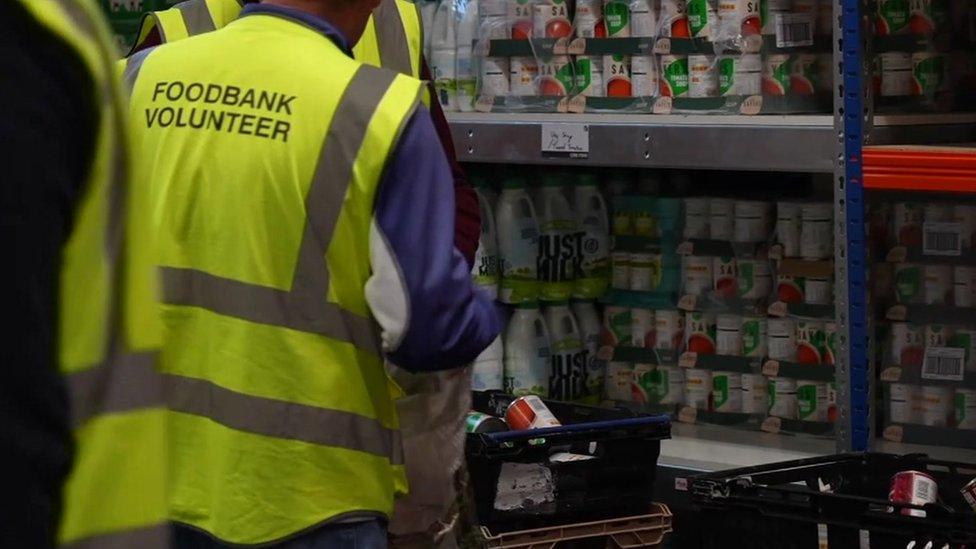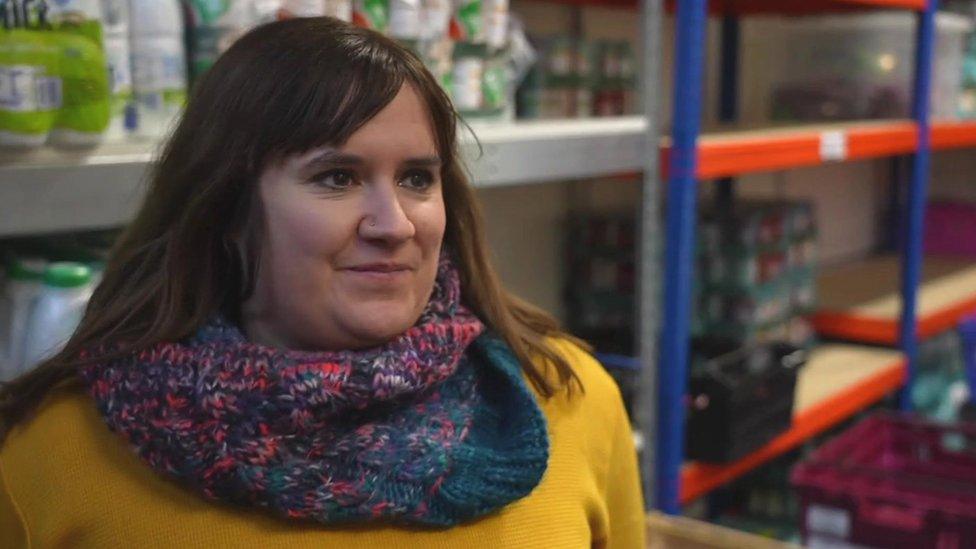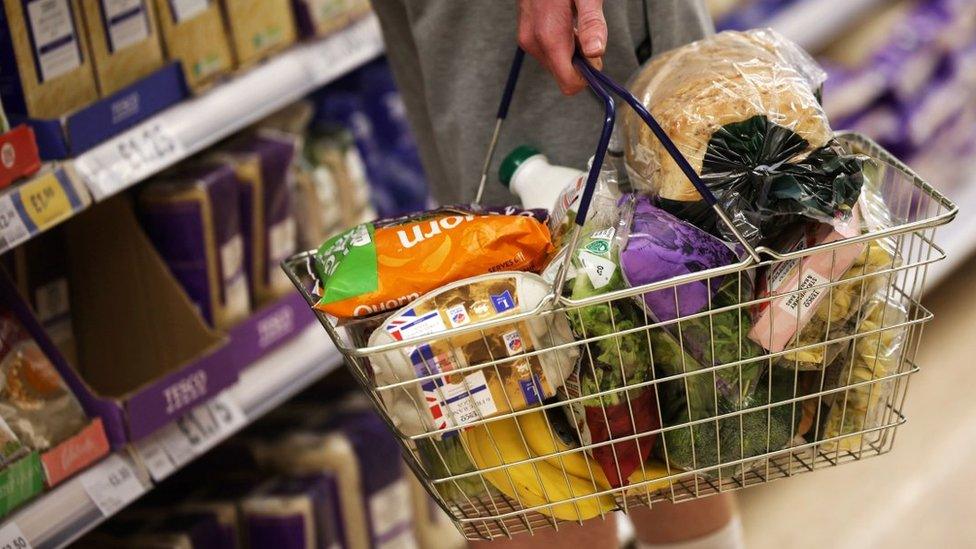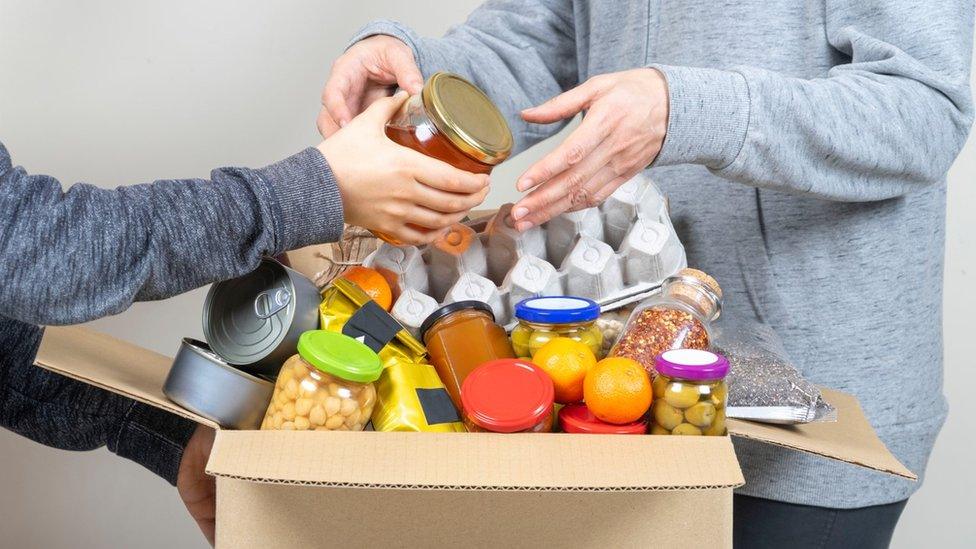Bethnal Green: Pensioners' dependence on food bank triples
- Published

Bow Foodbank said it has been helping up to 70 older people a week
A London food bank says it has seen a three-fold increase in older people relying on it for help each week.
Bow Foodbank in Bethnal Green, east London, says it has had to change the way it provides services due to demand becoming "unmanageable".
Meanwhile, charity Independent Age says many pensioners have reached "breaking point" due to the cost of living.
The Department for Work and Pensions (DWP) said it was "committed to supporting the most vulnerable".
Bow Foodbank is open-access, which means people can turn up and access support without having to be referred by external services like doctors or social services.
Its executive director Joanna Read said since she started working there a year and a half ago, the number of pensioners using their services has risen from 17 a week to up to 70 a week.
"At the same time as making sure they've got the food they need, it's really important that we think about making sure they've got access to all of that wider support as well," she added.
"We've done a lot of work with our pensioner groups, making sure they're referred into the local authority to look at pension credits, so they've got access to that longer, more sustainable help."

Joanna Read said the food bank tries to help older people access "longer, more sustainable help"
It is part of a wider picture of increased demand on the food bank, the organisation says.
During its busiest week in 2023 about 1,000 households came through its doors and it spent between £16,000 and £20,000 on food and other essential supplies.
While in 2022, its busiest week saw roughly 270 households using the service and a spend of £5,000 to £6,000.
Other food banks in the community are increasingly serving older residents too.
Len Edwards, 60, goes to the Good Shepherd Mission food bank in Bethnal Green every Monday.
He says he used to work as a teaching assistant, but in 2010 developed health issues and is now on benefits.

Len Edwards, 60, said without the food bank he would find it "very difficult" to afford basics
"It isn't just about food, it's about gas and it's about electricity, it's about rent - just day to day living," he said.
He added without the food bank's assistance he would "find it very difficult financially being able to afford food".
'Breaking point'
Morgan Vine, from Independent Age, a charity that supports older people facing financial hardship, said she was not surprised about the increase as "pensioners on a low-income are at absolute breaking point".
"The people we speak to aren't able to use their cookers, and are telling us that they can't afford to wash in warm water, so they're having to make really tough decisions," she said.
"I think that's one of the reasons more older people are going to food banks."
The situation in London is also being reflected nationally.
Recent Trussell Trust figures, external showed the number of emergency three-day food parcels handed out to pensioner households in the UK increased by 36% in the April and September 2023 period compared with the same period in 2022.
London is also the region with the highest number of people registered as using food banks, according to Trussell Trust.
A DWP spokesperson said: "There are 1.7m fewer people living in absolute poverty, including 400,000 children, compared to 2010.
"We are committed to supporting the most vulnerable households, which is why we are providing record cost of living support worth an average £3,700 per household. This includes increasing benefits by 6.7% from April on top of last year's 10.1% uplift."

Listen to the best of BBC Radio London on Sounds and follow BBC London on Facebook, external, X, external and Instagram, external. Send your story ideas to hellobbclondon@bbc.co.uk, external
Related topics
- Published23 January 2024

- Published16 October 2023

- Published18 May 2023
